Audio available in app
The notion of free will is an illusion, constrained by societal influence from "summary" of Beyond Good & Evil by Friedrich Nietzsche
The idea that individuals possess true freedom of choice in their actions is a deceptive one, influenced and shaped by the norms and values of society. The concept of free will is often seen as a fundamental aspect of human existence, providing individuals with the autonomy to make decisions independently of external forces. However, this notion is merely an illusion, as our choices are significantly constrained by the societal structures in which we live. Society plays a crucial role in shaping our beliefs, values, and behaviors from an early age, instilling in us a set of norms and expectations that influence our decision-making processes. These societal influences act as a form of conditioning, molding our thoughts and actions in alignment with the prevailing cultural standards. As a result, our perceived freedom of choice is limited by the boundaries set by society, making it difficult to act in complete autonomy. Furthermore, the collective mindset of society exerts a powerful influence on individuals, shaping their perceptions of right and wrong, good and evil. This societal pressure creates a system of moral boundaries that dictate acceptable behavior, leaving little room for true freedom of choice. Individuals are compelled to conform to these societal norms, even if it means sacrificing their own personal desires and inclinations.- The illusion of free will is perpetuated by the societal structures that govern our lives, constraining our actions within the confines of accepted behavior. The concept of individual autonomy is thus called into question, as our decisions are heavily influenced by external factors beyond our control. In reality, true freedom of choice is a rare commodity, overshadowed by the pervasive influence of society on our thoughts and actions.


